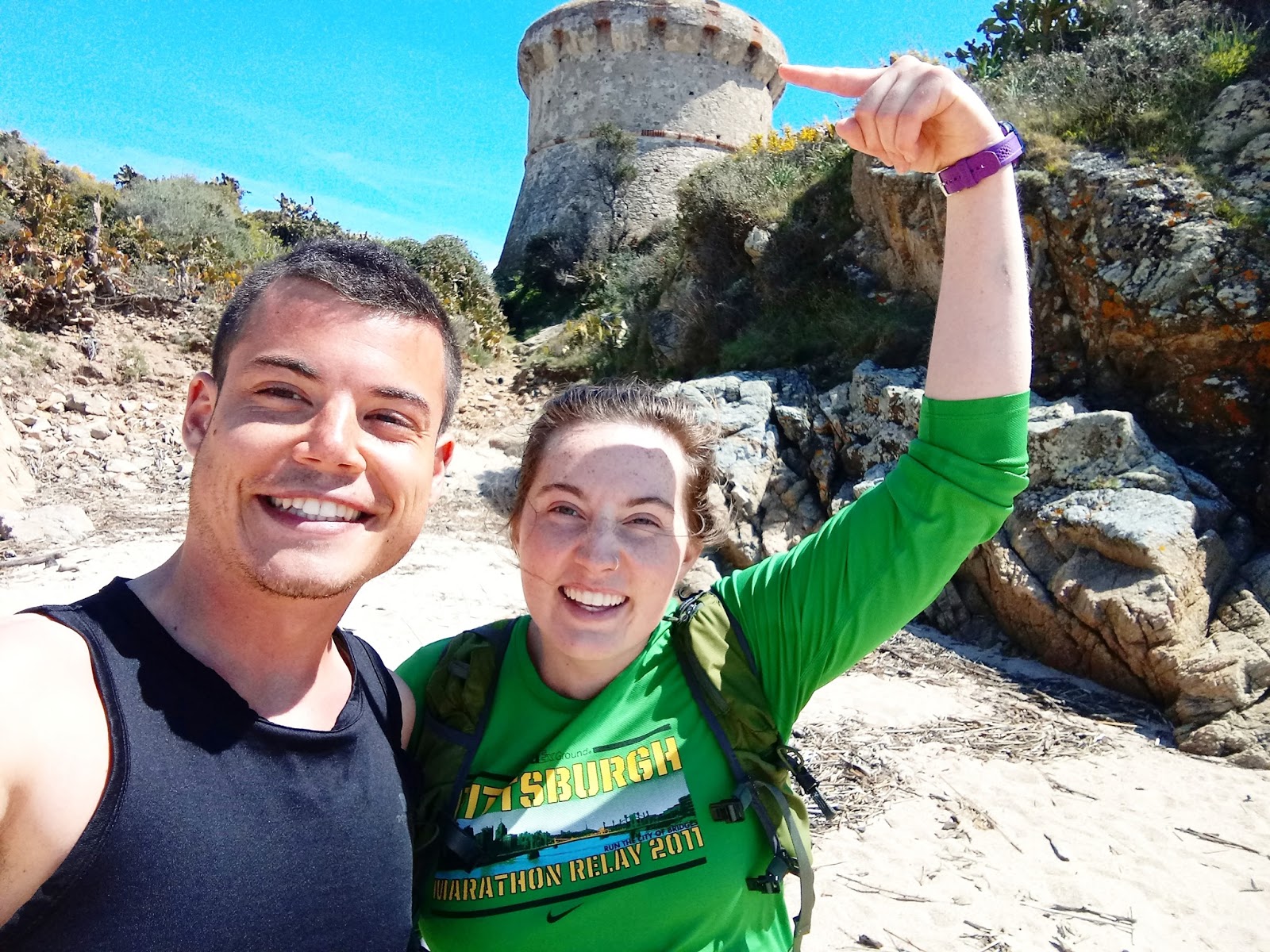
If you didn’t know already, many of expatalachians’ articles have been translated into Spanish thanks to the work of my wonderful friend, Rubén Babío. I met Rubén in Corsica, France when we were roommates while working as language assistants. I taught English and Rubén taught Spanish. He studied Spanish language and education in college in Galicia, Spain, where he was born and raised.
Rubén quickly became one of my closest friends, going on long hikes and beach excursions with me. What I like most about Rubén is how kind, thoughtful, and introspective he is. He loves to learn and is always seeking out new opportunities for intellectual and personal growth. I admire this and his true gift for languages. He can speak, write, and read in Spanish, English, and French.
After hearing me passionately talk about expatalachians, Rubén offered to translate our stories into Spanish to reach more Appalachian and Hispanophone readers. I really appreciated his offer and promptly took him up on it. Rubén continues to translate our stories into Spanish, enlisting the help of other gifted translators, such as Cayden Gill and Matías Duarte, from time to time.
I wanted to profile Rubén because his work for expatalachians is crucial and often unnoticed by readers. The following answers were edited for clarity.

What is the most challenging part about translating English writing into Spanish?
The one thing that still challenges me is the change of the word order in a phrase. Sometimes you have to reformulate a whole sentence from one language to another. Because Spanish is my mother tongue I can play with the original English words and find the expressions that suit best the overall meaning of the article and make it as coherent in Spanish. I would say that is my favorite part of the translating process.
Many English idioms do not have exact translations in Spanish and vice versa, which makes languages so interesting. If I were to translate from Spanish to English, that would mean taking a whole different approach, but I have not tried that yet.
What is it about languages that interests you so much?
Besides the singularities of each language and its rarities, what I find truly fascinating about languages is their power to open doors to anyone that finds the keys to them. When you delve into learning a language, you are also entering the cultures of its different speakers, and so their stories, history, and beliefs. Learning a new language means going back to childhood for me, when every new word felt like a discovery and where you can be playful, experiment, and, most importantly, start anew.
Why did you want to learn English?
My earliest memory of English is my mom telling me how to say the numbers from 0 to 10 and feeling amazed by how smart she was for speaking in such an unusual way. I must have been around five years old. Ever since I have been fascinated by English, which in Spain is taught from preschool all the way through high school as a compulsory subject. Being someone else and creating another identity, different from my Spanish self, has kept me captivated and is something that I still enjoy when learning other languages.
What do you appreciate most about the Spanish language, especially in comparison to English?
Because I have grown up in the Spanish language and it is the one I have read the most literature in, I have a greater insight into the language and can understand nuances more than in any other language I speak. To me languages are interconnected with experiences and the way these made you feel and so Spanish feels like the origin for me, the starting point. Since fluency in English happened for me at the age of 16 during a beautiful and exciting year abroad in Osawatomie, a small village in Kansas, English is inevitably related to fun memories of adolescence. That is why, unconsciously, I feel especially energetic and adventurous when speaking in English.
What are you studying currently in your master’s program?
I am at the last leg of this master’s degree in teaching foreign languages and specializing in French as a Second Language. I tend to focus on one language at a time and so this year I thought I would deepen my knowledge in French, which is the second foreign language I have fallen in love with. It was the soundtrack of an amazing year of self-discovery in Corsica and it conveys beautiful emotions for me. I am currently researching African poetry written in French as a way to bring students closer to different realities and cultures that are generally overlooked in French class, which is mostly centered on France. Bear in mind French is an official language in 29 countries and that we as individuals are evermore pluricultural.
What are your future professional goals? Do you want to continue working in translation?
I intend to teach Spanish as a Second Language somewhere abroad, hopefully in an Arabic-speaking country, as that is the third language I am venturing into. Translating is an interesting skill as it allows me to mediate between cultures and languages and so I ambition to keep on practicing it.
Do you think Appalachia and Galicia have any similarities?
Definitely. While reading through expatalachians’ articles I have found myself many times wondering how could two regions apparently so distant and unrelated could have so much in common. Beautiful green havens that have experienced great emigration movements and later have seen their natural resources greatly exploited.
What is your favorite part about Galicia?
I love how unique it is and how unexpected its character is compared to what one may think of Spain. Galicia is the land of the rain, lush vegetation, rough seashores and a distinctive sound of its people’s mother tongue. Portugal and Galicia share common roots that can still be appreciated in how similar their languages are: Galician and Portuguese used to be one, just like the two territories used to be one region of Spain. Galicia is the region of mystery (folktales about witches and magical spirits are commonplace) and one of the Celtic nations.
Annie Chester is a writer and co-founder of expatalachians. She writes about the environment and culture in Appalachia and abroad.
Subscribe to The Patch, our newsletter, to stay up-to-date with new expatalachians articles and news from around Appalachia.


